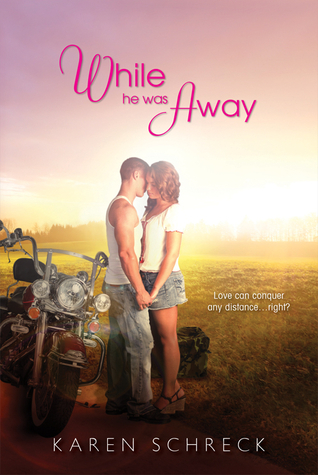 Description (from the Publisher): When seventeen-year-old Sophia Petheram’s beloved father dies, she receives an unexpected letter. An invitation—on fine ivory paper, in bold black handwriting—from the mysterious Monsieur Bernard de Cressac, her godfather. With no money and fewer options, Sophie accepts, leaving her humble childhood home for the astonishingly lavish Wyndriven Abbey, in the heart of Mississippi.
Description (from the Publisher): When seventeen-year-old Sophia Petheram’s beloved father dies, she receives an unexpected letter. An invitation—on fine ivory paper, in bold black handwriting—from the mysterious Monsieur Bernard de Cressac, her godfather. With no money and fewer options, Sophie accepts, leaving her humble childhood home for the astonishingly lavish Wyndriven Abbey, in the heart of Mississippi.Sophie has always longed for a comfortable life, and she finds herself both attracted to and shocked by the charm and easy manners of her overgenerous guardian. But as she begins to piece together the mystery of his past, it’s as if, thread by thread, a silken net is tightening around her. And as she gathers stories and catches whispers of his former wives—all with hair as red as her own—in the forgotten corners of the abbey, Sophie knows she’s trapped in the passion and danger of de Cressac’s intoxicating world.
Review: Strands of Bronze and Gold is a Gothic retelling of the Bluebeard fairy tale set in Pre-Civil Mississippi. When Sophia’s father dies, she is sent from Boston to Wyndriven Abbey, the Mississippi plantation of her godfather, Monsieur Bernard de Cressac. At first Sophia is caught up with her new luxurious lifestyle- beautiful gowns, jewelry, and extravagant dinners all made simply for her. Slowly, she finds herself being attracted to Bernard as he makes her the center of his world. Soon Bernard's attention becomes claustrophobic as he refuses to let her go outside the mansion. She becomes more and more suspicious of the plantation slaves’ living and working conditions, the vine-shrouded outbuildings she is not allowed to explore, and the various treasures belonging to Bernard’s former wives, all dead, that she finds in the attic. She even feels like there are ghosts following her and trying to deliver a message which she can't unravel until it is too late. In spite of her uneasy attraction to Bernard’s increasingly romantic intentions, Sophia finds herself falling for Gideon Stone, the local minister who also has the quiet reputation among the slaves of assisting in escapes to the North and who is much more aware about Bernard's sinister background.
Strands of Bronze and Gold is a decent read that has some strengths and weaknesses, however some of the weaknesses are hard to ignore. Nickerson does a good job in slowly building up the suspense and uneasiness surrounding Sophie. Though we can forgive her of being so swept up when she first attends Wyndriven Abbey, it really takes our heroine quite some time to figure out that there is something truly disturbing about her godfather Bernard. As our protagonist, Sophia isn't all that remarkable. Similarly, Bernard doesn't stray very far from the Bluebeard caricature. Nickerson definitely captured his wild mood swings and his lecherous looks made me shudder, but there is really no explanation of why he is a psychotic killer. I would have liked a bit more exploration with his character as well as more time spent with Sophia learning about Bernard's previous wives. Sophia's discovery along with meeting a new and dull love interest, Reverend Stone, happen all too quickly and conveniently.
Despite all these flaws, I was truly disappointed on how the topic of slavery was addressed in the book. I can see how the author tried to draw parallels between Sophia's caged life to those of Bernard's slaves, but it didn't quite make it there. It touched the surface just like how it touched the surface about the fairy tale's theme of the fatal effects of feminine curiosity.
Strands of Bronze and Gold is a book that is an entertaining read as long as you don't really think too much about it. Readers interested in fairy tales, a historical setting, and mystery would enjoy the book.
Rating: 3.5 stars
Words of Caution: There is some language, sexual innuendo, allusions to domestic abuse and rape, and disturbing images. Recommended for Grades 8 and up.
If you like this book try: Bluebeard's Egg by Margaret Atwood, The Rose and The Beast: Fairy Tales Retold by Francesca Lia Block























